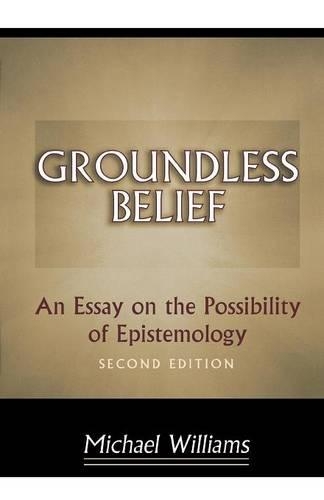
Groundless Belief: An Essay on the Possibility of Epistemology - Second Edition
(Paperback, Second Edition)
Publishing Details
Groundless Belief: An Essay on the Possibility of Epistemology - Second Edition
By (Author) Michael Williams
Princeton University Press
Princeton University Press
5th October 1999
Second Edition
United States
Classifications
Professional and Scholarly
Non Fiction
121
Physical Properties
Paperback
208
Width 140mm, Height 216mm
255g
Description
Michael Williams launches an attack, in this text, on what he calls "phenomenalism", the idea that knowledge of the world rests on a perceptual or experiential foundation. The point of this wider-than-normal usage of the term "phenomenalism", according to which even some forms of direct realism deserve to be called phenomenalistic, is to call attention to important continuities of thought between theories often thought to be competitors. William's target is not phenomenalism in its classical sense-datum and reductionist form but empiricism generally, he examines and rejects the idea that, unless beliefs are answerable to a "given" element in experience, objective knowledge will be impossible. The mild version of coherentism that results from a radical rejection of empiricist foundationalism does not "cut people off from the world". Far from being an antidote to scepticism, empiricist preconceptions are scepticism's main source. This edition contains an afterword in which Michael Williams places his arguments in the context of some discussions of coherentism versus the Myth of the Given and explains their relation to subsequent developments in his own epistemological views.
Reviews
"[An] intriguing work... Williams has an array of deft, decisive arguments directed at the views of Lewis, Ayer, Chisholm, Sellars, Bennett, et al... Tightly argued."--Alan Hart, Philosophy and Phenomenological Research
Author Bio
Michael Williams is Charles and Emma Morrison Professor of Humanities at Northwestern University.
